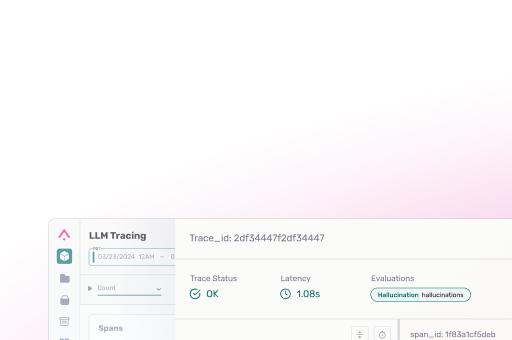LLM-as-a-jury refers to using a panel of language models — often smaller, diverse, and specialized — to evaluate or decide on the quality, safety, or correctness of another model’s output.
Where LLM as a judge may leverage a single, heavyweight evaluator, the jury approach leverages multiple LLMs to improve accuracy or human alignment — much like ensemble learning in classic ML.
LLM as a Jury: Basis in Research
Recent research converges on several core findings: panels of LLM evaluators can outperform single judges on both accuracy and cost; multi‑agent debate frameworks surface richer rationales and improve alignment with human judgments; newly introduced 2025 resources such as JudgeBench and Meta‑Judge pipelines raise evaluation standards, delivering 8–15% gains in reliability; diverse juror pools mitigates blind spots by capturing under‑represented perspectives; and long‑standing self‑consistency and self‑refinement techniques remain strong baselines, providing 10–20‑point accuracy lifts through aggregated reasoning paths.
| Paper | Why it Matters |
| MultiAgentBench: Evaluating Collaboration & Competition of LLM Agents (2025) | First 2025 multi‑agent benchmark; measures group performance in diverse, interactive scenarios |
| Leveraging LLMs as Meta‑Judges: A Multi‑Agent Framework (2025) | 3‑stage pipeline delivers +15 % vs single judge; shows value of juror selection |
| JudgeBench: Benchmark for LLM‑Based Judges (ICLR 2025) | 10 k‑comparison dataset stress‑tests judge reliability; highlights bias‑variance trade‑offs |
| If Multi‑Agent Debate is the Answer, What is the Question? (2025) | Evaluates five MAD methods; introduces Heter‑MAD for heterogeneous juries |
| Replacing Judges with Juries: Panel of LLM Evaluators (2024) | PoLL beats single GPT‑4 judge across six datasets at 1/7th cost |
| MAD: Multi‑Agent Debate (2024) | Open‑source debate agent improves truthfulness and rationale quality |
| Self‑Consistency Improves CoT (ICLR 2023) | Demonstrates benefit of aggregating reasoning paths |
| Jury Learning (CHI 2022) | Formal framework for weighting jurors & auditing dissent |
| Constitutional AI (Anthropic 2022) | Uses internal rule‑based jurors for safety alignment |
Where to Use LLM Juries Today
Several use cases are emerging for LLM juries.
| Use Case | Why Juries Help |
| Offline & Continuous Benchmarks | Higher correlation with humans; cheaper to refresh scores nightly. |
| Guardrails / Safety Filtering | Diverse jurors catch edge‑case harms a single judge misses. |
| RAG & Agent Validation | Majority‑vote juries flag hallucinations before answers reach users. |
| Content Moderation & Policy Enforcement | Weighted juries reflect community norms and reduce demographic bias. |
| RL‑from‑AI‑feedback (RLAIF) | Jury scores can replace or augment costly human preference labels. |
| A/B Testing & Model Selection | Side‑by‑side comparisons at scale with statistically robust verdicts. |
How to Implement an LLM Jury (Arize AI Example)
Arize’s LLM‑as‑Judge templates let you score any response for helpfulness, correctness, safety, and more.
Once you have an Arize API key and space ID, you can build a JuryEvaluator one in a dozen lines by orchestrating several template‑based judges in parallel and aggregating their votes. Here’s an example.
Install needed packages:
!pip install -qqq litellm arize-otel arize-phoenix-evals pandas openai openinference-instrumentation-litellm
Add Arize info to see judge call tracing:
import os
# Add Arize info to see Judge Call Tracing
os.environ["SPACE_ID"] = ''
os.environ["API_KEY"] = ''
# Add API Keys for Judge Models
os.environ["OPENAI_API_KEY"] = ''
os.environ["ANTHROPIC_API_KEY"] = ''
Run jury:
import os
from typing import List, Dict, Any
from concurrent.futures import ThreadPoolExecutor
from collections import Counter
import pandas as pd
from phoenix.evals import llm_classify, LiteLLMModel
from arize.otel import register
from openinference.instrumentation.litellm import LiteLLMInstrumentor
from datetime import datetime
# Register OpenTelemetry with Arize
tracer_provider = register(
space_id=os.environ["SPACE_ID"],
api_key=os.environ["API_KEY"],
project_name=f"llm-jury-evaluation",
)
# Instrument LiteLLM
LiteLLMInstrumentor().instrument(tracer_provider=tracer_provider)
# Define your responses to evaluate
my_responses = [
{
"input": "What is the capital of France?",
"reference": "Paris is the capital of France.",
"output": "Paris",
},
# Add more examples here...
]
# Convert responses to DataFrame for Phoenix evals
df = pd.DataFrame(my_responses)
# Define the judge models
JUDGE_MODELS = [
"claude-3-5-sonnet-latest",
"gpt-3.5-turbo",
"gpt-4o-mini",
]
# Define the judge prompt template
JUDGE_PROMPT_TEMPLATE = """You are an expert judge evaluating the quality of AI responses.
Task: Evaluate if the AI's response is correct and helpful based on the input and reference.
Input: {input}
Reference Answer: {reference}
AI Response: {output}
Evaluate the response based on:
1. Correctness: Is the information accurate and matches the reference?
2. Helpfulness: Is the response clear, complete, and useful?
Respond with one of the following labels:
- "correct": The response is both correct and helpful
- "incorrect": The response is incorrect or misleading
Provide a brief explanation for your judgment."""
# Define valid response options (rails)
JUDGE_RAILS = ["correct", "incorrect"]
def run_judge(model: str, df: pd.DataFrame) -> Dict[str, List[str]]:
"""Run a single judge model on all responses using Phoenix evals."""
# Initialize the judge model with tracing
llm_judge_model = LiteLLMModel(
model=model,
)
# Run evaluation using Phoenix with tracing
eval_results = llm_classify(
dataframe=df,
template=JUDGE_PROMPT_TEMPLATE,
model=llm_judge_model,
provide_explanation=True,
rails=JUDGE_RAILS,
)
return {
"labels": eval_results["label"].tolist(),
"explanations": eval_results["explanation"].tolist()
}
def safe_majority_vote(votes: List[str]) -> str:
"""Aggregate votes with tie handling."""
count = Counter(votes)
most_common = count.most_common()
if len(most_common) == 1 or most_common[0]
[1] > most_common[1]
[1]:
return most_common[0]
[0]
return "tie"
def main():
# Run all judges in parallel
with ThreadPoolExecutor(max_workers=len(JUDGE_MODELS)) as pool:
juror_results = list(pool.map(
lambda model: run_judge(model, df),
JUDGE_MODELS
))
# Extract labels from each judge's results
juror_votes = [result["labels"] for result in juror_results]
# Aggregate votes for each response
verdicts = [
safe_majority_vote(votes)
for votes in zip(*juror_votes)
]
# Prepare explanations for logging
juror_explanations = {
model: results["explanations"]
for model, results in zip(JUDGE_MODELS, juror_results)
}
print(f"Verdicts: {verdicts}")
print(f"Explanations: {juror_explanations}")
if __name__ == "__main__":
main()



